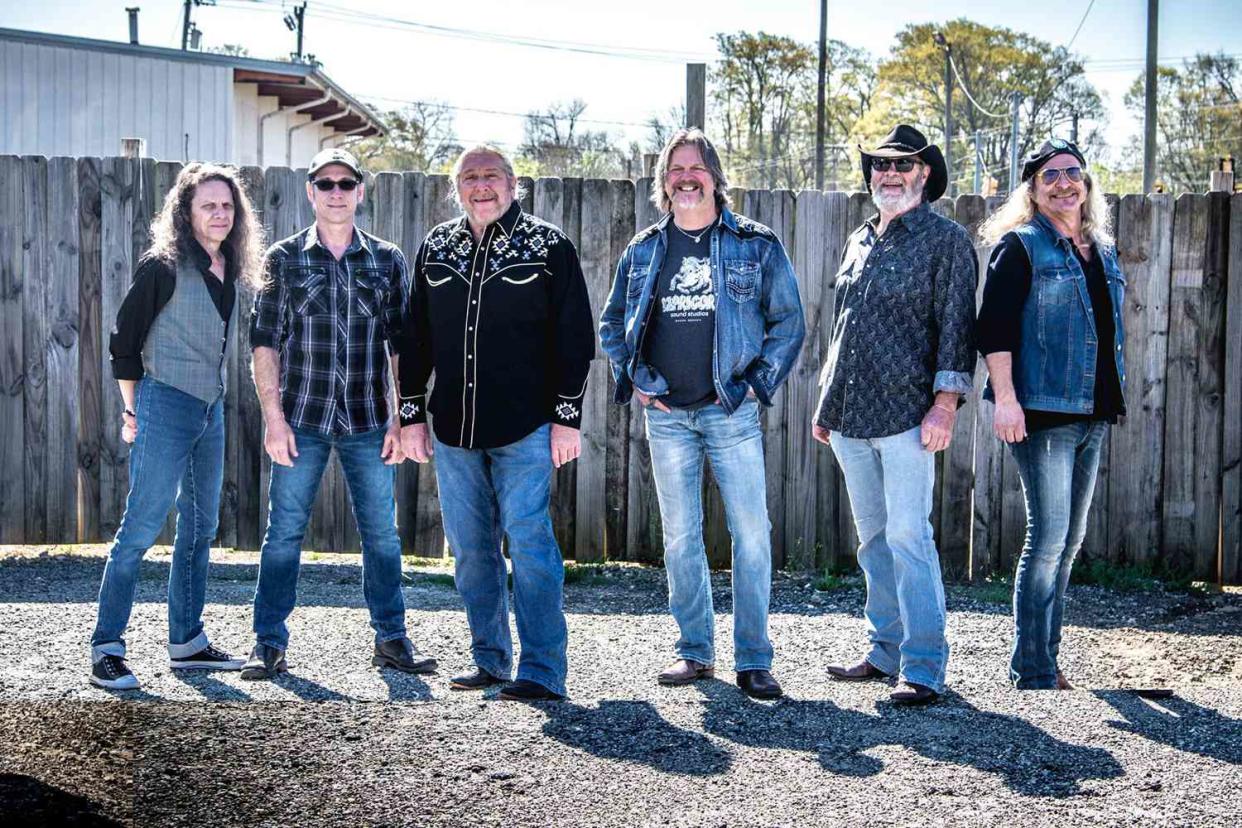Marshall Tucker Band on Their 50-Year Climb From a Name on a Key Chain to Southern Rock Architects

Mariah Gray Marshall Tucker Band
Doug Gray was fresh off his tour of duty in Vietnam when he and some friends from his Spartanburg, South Carolina, home grabbed their instruments and started playing together. They pooled their money and spent $20 a month to rent practice space in a ramshackle warehouse. A local concert promoter offered them an opening spot for the Allman Brothers. It was Feb. 12, 1972, -- and the band didn't even have a name.
The single key they shared to open the practice space dangled from a key chain stamped with the name Marshall Tucker. They took the moniker, and the Marshall Tucker Band was born. The group endured, and five decades later Marshall Tucker Band's legacy boasts a string of hits including "Can't You See," "Heard It in a Love Song" and "Fire on the Mountain" as well as the distinction of being an architect of Southern rock.
The multi-platinum rockers will celebrate their five-decade history in 2022 when the Marshall Tucker Band embarks on its sweeping "50th Anniversary Tour." The more than 30-date run starts in Texas Jan. 12, snakes along the coastline to Louisiana and Florida before heading north to New York City's Beacon Theatre and then out west to Colorado and Arizona.
RELATED: Dolly Parton Talks Giving Back and Being a Tough Boss: 'I Try to Rule with Love and Compassion'
"This foundation is so strong that it would take a hurricane to knock Marshall Tucker Band off its foundation," singer Doug Gray tells PEOPLE. "But I'm understanding of the people that don't realize what we actually have done."
The band's ascent to the top was fast, but before they were popular, surviving off stage was a struggle. Reliably paying the band's bills and showing up to gigs was crucial to Gray so he made sure their hotels were covered and gas money was set aside before members were paid.
One night near Christmas many decades ago, Gray's policy meant their payment from the gig was one penny. The singer says the circumstances only made them stronger and that the men's focus was solely on the stage.
Their dedication paid off. The Marshall Tucker Band played Kenny's Castaways in New York City for about 40 people. Three months later, the band opened a show for fellow Southern rockers The Allman Brothers Band at Madison Square Garden. Gray remembers fans held matches in the air and that the smell of sulfur was so thick it was difficult to sing. The band played three encores that night.
"It was unbelievable," he says. "People wanted it. We were doing 'Ramblin' and all those butt-kicking songs that we love. We played every song that people still hear on the radio."
Within a year, Marshall Tucker Band had its first gold record, signifying 500,000 copies sold. The trophy was for their self-titled debut album that is home to "Can't You See." From there, the band went on to earn four additional gold albums and three platinum albums, which commemorate 1 million albums sold. The sales were confirmed by the The Recording Industry Association of America, but Gray felt like the recognition really came from the band's fans.
"It wasn't instant success," Gray says. "It was bust your butt and make it right. Make the people feel like you care and let them know that you certainly appreciate them showing up. I still appreciate them to this day."
The Charlie Daniels Band was Marshall Tucker Band's frequent opening act and Daniels, who passed away in 2020, was one of Gray's closest friends. The year before he died, Daniels told The Tennessean that Gray was "the best singer on the scene at the time."
RELATED: Keith Urban Announces North American Tour: 'It's Really Gonna Be Tough to Get Us Off the Stage'
"Doug and Gregg Allman (from the Allman Brothers Band) blazed a trail," Daniels says. "They had their own sound. When you heard them on the radio, you knew who it was. Marshall Tucker still play what they play, and they still make it sound good."
Gray will make sure the band sounds its best when it launches its 50th Anniversary Tour, too. He says the group, which includes himself and five other men, runs on respect. Members don't argue with each other, and if one of them has a bad night, the other guy steps up to fill in the gaps.
"As long as we all stay together and believe in the same thing, we'll be good," Gray says. "And I don't go into God or anything. Just believe in yourself, your first intuition and how close you need to be to your brother."

 Yahoo Movies
Yahoo Movies 
